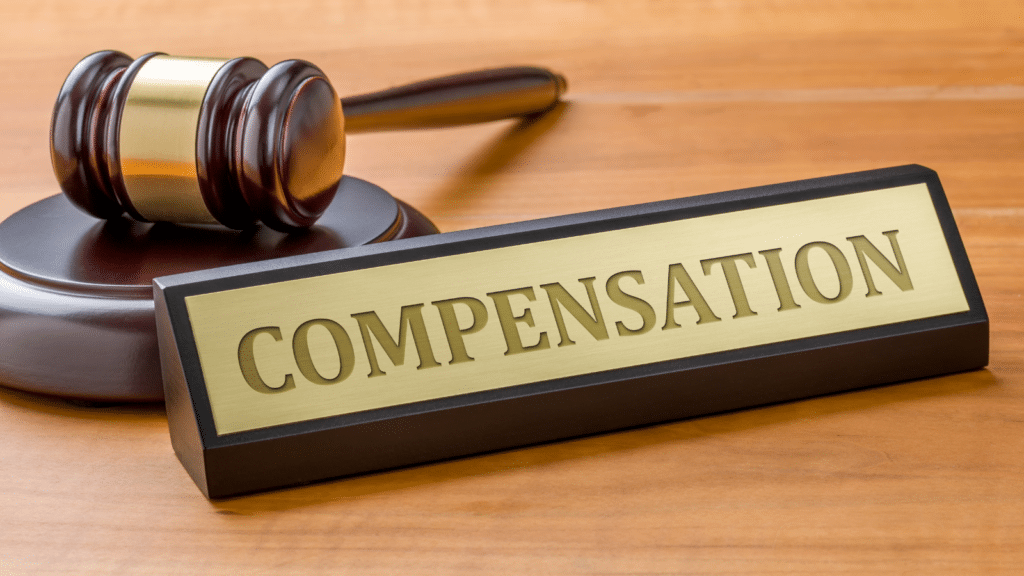Introduction Eu law does not prohibit states from owning or investing in companies [see Article 345 TFEU]. This means that when the state, as owner, makes payments to the companies it owns or loses part of its capital as a result of commercial losses, it does not grant to them State aid if such payments are mandated by law and […]
State Aid Law
Blog
State Aid Uncovered Blog
In Lexxion’s State Aid Uncovered blog, Prof. Phedon Nicolaides publishes weekly critical analyses of recent State aid judgments and decisions. Each post presents the key points of a court judgment or EU Commission decision, places it in the context of similar case law or practice, assesses the underlying reasoning and highlights any inconsistencies or contradictions.
Guest contributions from other State aid experts will also be published on the blog at irregular intervals to complement the content of the blog posts.
State Aid Uncovered ×
17. June 2025 |
State Aid Uncovered
by Phedon Nicolaides
9. January 2025 |
State Aid Uncovered
by Phedon Nicolaides
Introduction During the covid-19 pandemic there were fewer bankruptcies than normal. The consensus opinion is that the vast amounts of liquidity that were pumped into EU economies saved not only healthy companies but also many of those that would have otherwise gone out of business. Although the large-scale support schemes were necessary, they also created a problem: how to separate […]
3. December 2024 |
State Aid Uncovered
by Phedon Nicolaides
Introduction A perennial question by aggrieved investors who feel cheated by u-turns in public policy is: “May I claim compensation for damage that I have suffered as a result of non-payment of the State aid that was promised to me?” As a result of recent case law, it is now clear that there are several answers to this question: First, […]
26. November 2024 |
State Aid Uncovered
by Phedon Nicolaides
Introduction This article reviews two judgments concerning a claim that compensation does not constitute State aid and a complaint that the Commission had failed to act, respectively. The latter case is particularly interesting because it is probably the only judgment in the past decade or two that the Court of Justice has actually upheld a claim that the Commission breached […]
29. October 2024 |
State Aid Uncovered
by Phedon Nicolaides
Introduction Member States are free to determine what the regard as a service of general economic interest [SGEI]. The Commission may only check whether the definition is free of manifest error and that any compensation that is provided conforms with the conditions laid down in the 2012 SGEI package. Member States commit a manifest error when they designate as SGEI […]
10. September 2024 |
State Aid Uncovered
by Phedon Nicolaides
Introduction Normally the cost of compliance with mandatory regulations may not be offset, partially or fully, by State aid because it lacks incentive effect. The beneficiaries would have to incur those costs anyway. However, even in the case of mandatory compliance, State aid may still have an incentive effect if the undertakings concerned would cease altogether the activity in question. […]
30. July 2024 |
State Aid Uncovered
by Phedon Nicolaides
Introduction In December 2020, the Commission approved State aid scheme SA.59029 by which Italy compensated airlines for damage they had suffered as a result of covid-19-related restrictions, in the period from 1 March to 15 June 2020. Eligible airlines were only those that were licensed in Italy. The aid was approved on the basis of Article 107(2)(b) TFEU. In May […]
17. October 2023 |
State Aid Uncovered
by Phedon Nicolaides
Introduction On 28 September 2023, the Court of Justice, in case C-320/21 P, Ryanair v European Commission, delivered its first judgment in a series of appeals brought by Ryanair challenging the dismissal by the General Court of its action in multiple cases seeking the annulment of various Commission decisions authorising aid to airlines during the covid-19 pandemic. Both before the […]
8. November 2022 |
State Aid Uncovered
by Phedon Nicolaides
Compensation for damage suffered by undertakings as a result of a natural disaster constitutes State aid. The compensation is compatible with the internal market only if, first, there is a causal relationship between the natural disaster and the damage and, second, the amount of compensation does not exceed the amount of the damage. Introduction Financial assistance in the form of […]
22. February 2022 |
State Aid Uncovered
by Phedon Nicolaides
Compensation for damage caused by protected animals is State aid. Member States may categorise compensatory payments as de minimis aid and refuse to make payments in excess of the de minimis threshold. Introduction Advantage in the meaning of Article 107(1) TFEU is any benefit granted by the state that is not available under normal market conditions. Normal market conditions are […]
State Aid Uncovered ×
17. June 2025 |
State Aid Uncovered
by Phedon Nicolaides
Introduction Eu law does not prohibit states from owning or investing in companies [see Article 345 TFEU]. This means that when the state, as owner, makes payments to the companies it owns or loses part of its capital as a result of commercial losses, it does not grant to them State aid if such payments are mandated by law and […]
9. January 2025 |
State Aid Uncovered
by Phedon Nicolaides
Introduction During the covid-19 pandemic there were fewer bankruptcies than normal. The consensus opinion is that the vast amounts of liquidity that were pumped into EU economies saved not only healthy companies but also many of those that would have otherwise gone out of business. Although the large-scale support schemes were necessary, they also created a problem: how to separate […]
3. December 2024 |
State Aid Uncovered
by Phedon Nicolaides
Introduction A perennial question by aggrieved investors who feel cheated by u-turns in public policy is: “May I claim compensation for damage that I have suffered as a result of non-payment of the State aid that was promised to me?” As a result of recent case law, it is now clear that there are several answers to this question: First, […]
26. November 2024 |
State Aid Uncovered
by Phedon Nicolaides
Introduction This article reviews two judgments concerning a claim that compensation does not constitute State aid and a complaint that the Commission had failed to act, respectively. The latter case is particularly interesting because it is probably the only judgment in the past decade or two that the Court of Justice has actually upheld a claim that the Commission breached […]
29. October 2024 |
State Aid Uncovered
by Phedon Nicolaides
Introduction Member States are free to determine what the regard as a service of general economic interest [SGEI]. The Commission may only check whether the definition is free of manifest error and that any compensation that is provided conforms with the conditions laid down in the 2012 SGEI package. Member States commit a manifest error when they designate as SGEI […]
10. September 2024 |
State Aid Uncovered
by Phedon Nicolaides
Introduction Normally the cost of compliance with mandatory regulations may not be offset, partially or fully, by State aid because it lacks incentive effect. The beneficiaries would have to incur those costs anyway. However, even in the case of mandatory compliance, State aid may still have an incentive effect if the undertakings concerned would cease altogether the activity in question. […]
30. July 2024 |
State Aid Uncovered
by Phedon Nicolaides
Introduction In December 2020, the Commission approved State aid scheme SA.59029 by which Italy compensated airlines for damage they had suffered as a result of covid-19-related restrictions, in the period from 1 March to 15 June 2020. Eligible airlines were only those that were licensed in Italy. The aid was approved on the basis of Article 107(2)(b) TFEU. In May […]
17. October 2023 |
State Aid Uncovered
by Phedon Nicolaides
Introduction On 28 September 2023, the Court of Justice, in case C-320/21 P, Ryanair v European Commission, delivered its first judgment in a series of appeals brought by Ryanair challenging the dismissal by the General Court of its action in multiple cases seeking the annulment of various Commission decisions authorising aid to airlines during the covid-19 pandemic. Both before the […]
8. November 2022 |
State Aid Uncovered
by Phedon Nicolaides
Compensation for damage suffered by undertakings as a result of a natural disaster constitutes State aid. The compensation is compatible with the internal market only if, first, there is a causal relationship between the natural disaster and the damage and, second, the amount of compensation does not exceed the amount of the damage. Introduction Financial assistance in the form of […]
22. February 2022 |
State Aid Uncovered
by Phedon Nicolaides
Compensation for damage caused by protected animals is State aid. Member States may categorise compensatory payments as de minimis aid and refuse to make payments in excess of the de minimis threshold. Introduction Advantage in the meaning of Article 107(1) TFEU is any benefit granted by the state that is not available under normal market conditions. Normal market conditions are […]
State Aid Uncovered ×
17. June 2025 |
State Aid Uncovered
by Phedon Nicolaides
Introduction Eu law does not prohibit states from owning or investing in companies [see Article 345 TFEU]. This means that when the state, as owner, makes payments to the companies it owns or loses part of its capital as a result of commercial losses, it does not grant to them State aid if such payments are mandated by law and […]
9. January 2025 |
State Aid Uncovered
by Phedon Nicolaides
Introduction During the covid-19 pandemic there were fewer bankruptcies than normal. The consensus opinion is that the vast amounts of liquidity that were pumped into EU economies saved not only healthy companies but also many of those that would have otherwise gone out of business. Although the large-scale support schemes were necessary, they also created a problem: how to separate […]
3. December 2024 |
State Aid Uncovered
by Phedon Nicolaides
Introduction A perennial question by aggrieved investors who feel cheated by u-turns in public policy is: “May I claim compensation for damage that I have suffered as a result of non-payment of the State aid that was promised to me?” As a result of recent case law, it is now clear that there are several answers to this question: First, […]
26. November 2024 |
State Aid Uncovered
by Phedon Nicolaides
Introduction This article reviews two judgments concerning a claim that compensation does not constitute State aid and a complaint that the Commission had failed to act, respectively. The latter case is particularly interesting because it is probably the only judgment in the past decade or two that the Court of Justice has actually upheld a claim that the Commission breached […]
29. October 2024 |
State Aid Uncovered
by Phedon Nicolaides
Introduction Member States are free to determine what the regard as a service of general economic interest [SGEI]. The Commission may only check whether the definition is free of manifest error and that any compensation that is provided conforms with the conditions laid down in the 2012 SGEI package. Member States commit a manifest error when they designate as SGEI […]
10. September 2024 |
State Aid Uncovered
by Phedon Nicolaides
Introduction Normally the cost of compliance with mandatory regulations may not be offset, partially or fully, by State aid because it lacks incentive effect. The beneficiaries would have to incur those costs anyway. However, even in the case of mandatory compliance, State aid may still have an incentive effect if the undertakings concerned would cease altogether the activity in question. […]
30. July 2024 |
State Aid Uncovered
by Phedon Nicolaides
Introduction In December 2020, the Commission approved State aid scheme SA.59029 by which Italy compensated airlines for damage they had suffered as a result of covid-19-related restrictions, in the period from 1 March to 15 June 2020. Eligible airlines were only those that were licensed in Italy. The aid was approved on the basis of Article 107(2)(b) TFEU. In May […]
17. October 2023 |
State Aid Uncovered
by Phedon Nicolaides
Introduction On 28 September 2023, the Court of Justice, in case C-320/21 P, Ryanair v European Commission, delivered its first judgment in a series of appeals brought by Ryanair challenging the dismissal by the General Court of its action in multiple cases seeking the annulment of various Commission decisions authorising aid to airlines during the covid-19 pandemic. Both before the […]
8. November 2022 |
State Aid Uncovered
by Phedon Nicolaides
Compensation for damage suffered by undertakings as a result of a natural disaster constitutes State aid. The compensation is compatible with the internal market only if, first, there is a causal relationship between the natural disaster and the damage and, second, the amount of compensation does not exceed the amount of the damage. Introduction Financial assistance in the form of […]
22. February 2022 |
State Aid Uncovered
by Phedon Nicolaides
Compensation for damage caused by protected animals is State aid. Member States may categorise compensatory payments as de minimis aid and refuse to make payments in excess of the de minimis threshold. Introduction Advantage in the meaning of Article 107(1) TFEU is any benefit granted by the state that is not available under normal market conditions. Normal market conditions are […]













